07 Apr2020
By Jerrica Thurman

AACTE continues to seek opportunities to support its members in navigating through the unprecedented educational challenges the coronavirus has caused. It is exciting to discover how AACTE members are exploring innovative pathways and solutions to the complex problems and are eager to share with the educator preparation community. Next week, AACTE and Old Dominion University will co-sponsor a 60-minute webinar featuring education faculty advising world nations on COVID-19, Wednesday, April 15 from 2:00 – 3:00 p.m. The webinar is open to all AACTE members.
27 Mar2020
AACTE Responds to COVID-19
By Katrina Norfleet
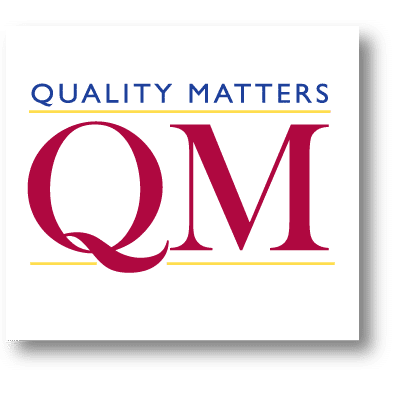 To assist education institutions in transitioning to temporary remote instructions of classroom-based courses, Quality Matters (QM) has created an “Emergency Remote Instruction (ERI) Checklist.” The three-tiered list includes considerations, tips, and actionable strategies, according to prioritized needs. The QM ERI Checklist is organized into three columns to first provide instructors with recommended actions, then add a brief explanation of the action’s importance and impact, and finally, a column to reference related Specific Review Standards from the QM Higher Education Rubric™, Sixth Edition.
To assist education institutions in transitioning to temporary remote instructions of classroom-based courses, Quality Matters (QM) has created an “Emergency Remote Instruction (ERI) Checklist.” The three-tiered list includes considerations, tips, and actionable strategies, according to prioritized needs. The QM ERI Checklist is organized into three columns to first provide instructors with recommended actions, then add a brief explanation of the action’s importance and impact, and finally, a column to reference related Specific Review Standards from the QM Higher Education Rubric™, Sixth Edition.
This checklist is a useful tool for individual faculty as a prioritized checklist for remote teaching and as guidance for instructional designers and/or educational technologists who are working with faculty in a rapid development process to temporarily move classroom instruction online.
Below is an abbreviated list of the “Recommended Actions for Instructors.” For access to the complete tool, link to QM Emergency Remote Instruction Checklist.
27 Mar2020
AACTE Responds to COVID-19
By Thomas Rodgers
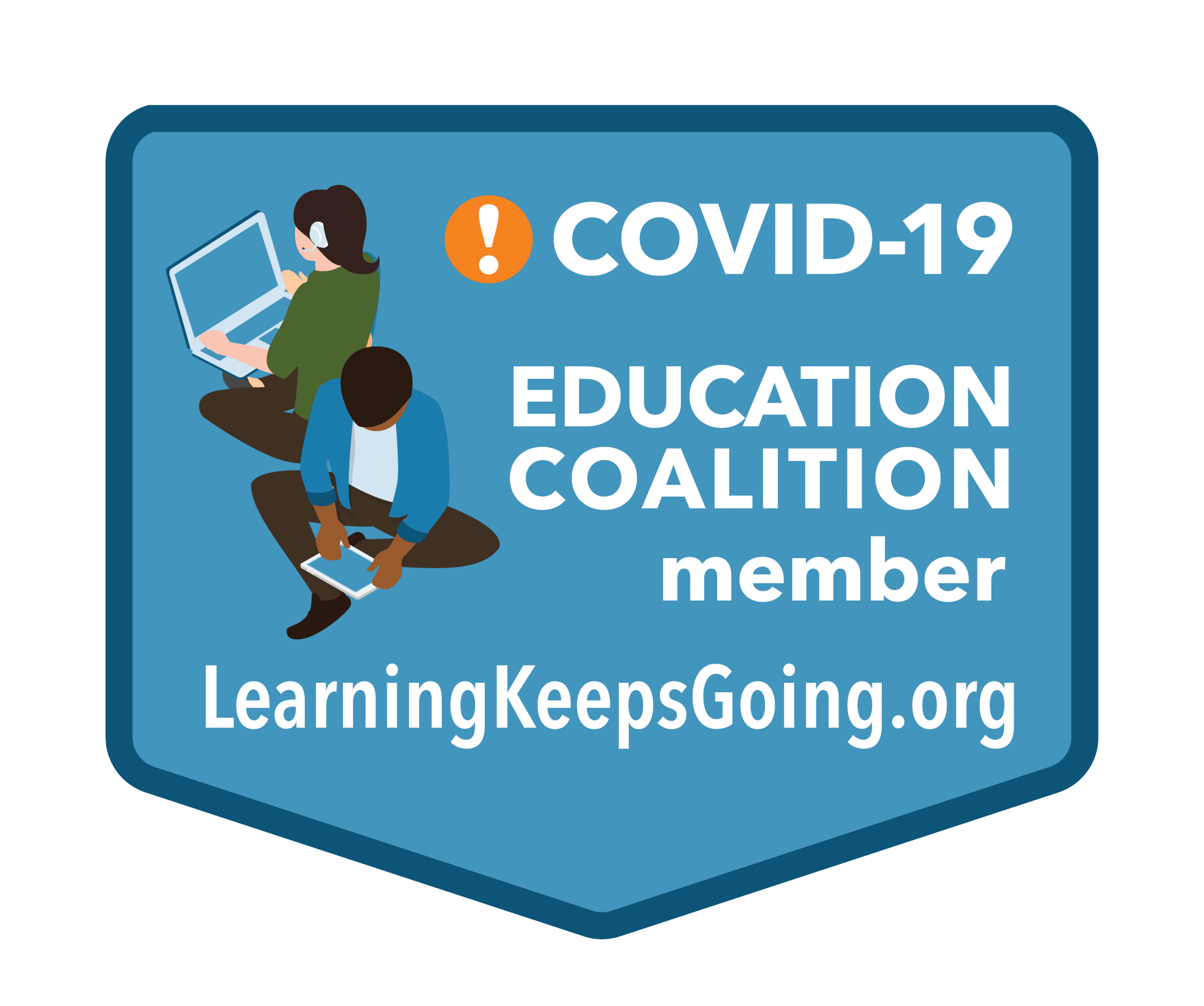 AACTE has joined this coalition to provide support to the nation’s teacher leaders and educators during the coronovavirus pandemic.
AACTE has joined this coalition to provide support to the nation’s teacher leaders and educators during the coronovavirus pandemic.
The International Society for Technology in Education (ISTE), an education nonprofit that works with the education community to accelerate the use of technology to solve tough problems and inspire innovation, today announced the launch of COVID-19 Education Coalition—a diverse group of education organizations focused on curating, creating, and delivering high-quality tools and support for educators as they keep the learning going during extended school closures caused by the global pandemic.
“In this time of uncertainty and rapid change, school system leaders and educators are being inundated with information. This is an effort to cut through the noise, and provide a coordinated response to the urgent need for accurate information, responsive professional learning and contextualized resources,” said Richard Culatta, CEO of ISTE. “We’re coming together with over 50 of education’s trusted associations and nonprofit organizations to help ensure educators have what they need to support students and families.”
24 Mar2020
By Lisa Dieker
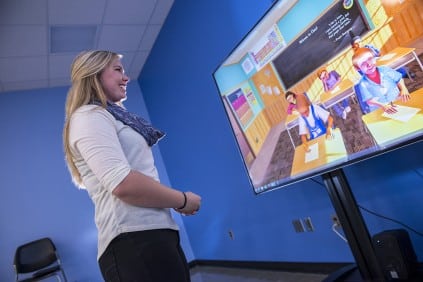
The University of Central Florida (UCF) has moved their work with TeachLivE to remote servers to allow teacher candidates throughout the duration of the COVID-19 Pandemic to use simulations of classrooms to observe student teaching competencies. UCF invites teacher educators from other teacher training institutions to use the TeachLivE platform.
TeachLivE now has the capability to observe student teachers interacting with elementary (option for inclusive setting), middle, and high school (option for inclusive setting) classrooms. Users may request English Language Learning avatars (Spanish).We also support preparation for parent-teacher and teacher-principal conferences. These virtual simulations can occur with an instructor observing a prospective teacher interacting remotely with students in one of the TeachLivE environments or used in an online setting with peers watching each other to provide feedback. The instructor can record data about specific student teaching competencies and providing feedback to the prospective teachers.
11 Mar2020
By Jacqueline E. King, Ph.D.
The 2018 Teaching and Learning International Survey (TALIS) released by the Organisation for Economic Co-operation and Development (OECD) covers about 260,000 teachers in 15,000 schools across 48 countries and economies.
The survey found that 67% of U.S. teachers under age 30 claimed teaching was their first career choice, consistent with the average for all participating countries. However, more than 73% of young teachers in Finland and close to 80% of young teachers in Alberta, Canada said teaching was their first choice. Moreover, 85% of young teachers in Japan and over 90% of young teachers in South Korea indicated teaching was their first-choice career.
Positive findings are that teachers in the United States are more likely to have received formal preparation on teaching students with special needs and on teaching in multicultural and/or multilingual settings, and feel better prepared in those areas than their peers in other OECD countries.
11 Mar2020
By Faye Snodgress
In response to many requests, Kappa Delta Pi (KDP), an AACTE affiliate member, is offering faculty to participate in free professional development related to education for sustainable development (ESD). The Online Global Forum on ESD is designed to meet the needs of teacher educators who work with preservice and in-service teachers of primary and secondary schools. The Forum focuses on educational themes (e.g., systems thinking, pedagogy, and assessment) and teaching about current threats to global sustainability (e.g., climate change and social inequity).
Each unit includes an overview of the theme, usually in short videos, online discussions, and thought activities, as well as a live discussion with ESD experts. Videos and discussions will include practical topics, such as how to integrate sustainability into existing teacher preparation courses and good practices.
To join the Forum, please visit our website. There is no cost to participate!
Faye Snodgress is the executive director of Kappa Delta Pi, International Honor Society in Education.
06 Mar2020
By Ann Doss Helms
This article originally appeared on WFAE and is reprinted with permission.
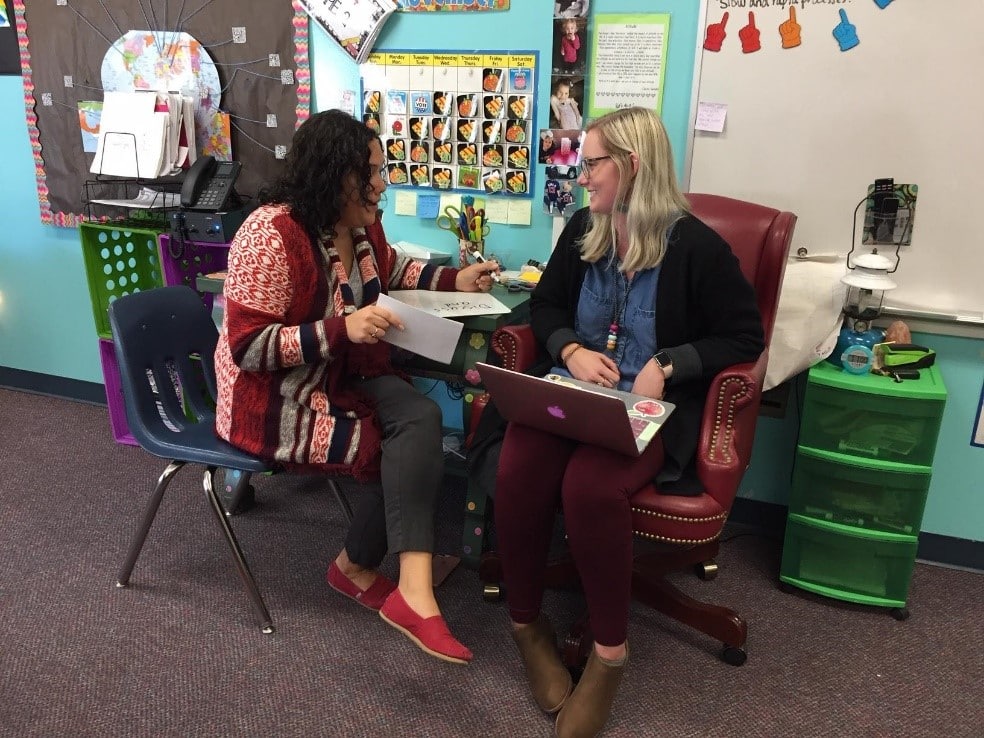
Fourth-grade teacher Lindsey Turner (left) huddles with student teacher Jessica Jenkins during class at Harrisburg Elementary. Credit Ann Doss Helms/WFAE
Whenever the spotlight turns to struggling schools and failing students, there’s another question that bubbles up: How well are America’s teacher preparation programs doing their job?
Ellen McIntyre, who headed UNC Charlotte’s Cato College of Education for six years, says there’s plenty of room for improvement. The college (which is a WFAE underwriter) is working with Charlotte-area public schools to improve a crucial step in teacher prep: Student teaching.
Too many student teachers, she says, still experience the sink-or-swim approach she did years ago: Being thrown into a classroom with the regular teacher watching passively and critiquing after the fact, while university supervisors pop in and out without forging real connections.
21 Feb2020
By Dustin Wunderlich
The articles below originally appeared on the University of Washington College of Education website and are reprinted with permission.
Jo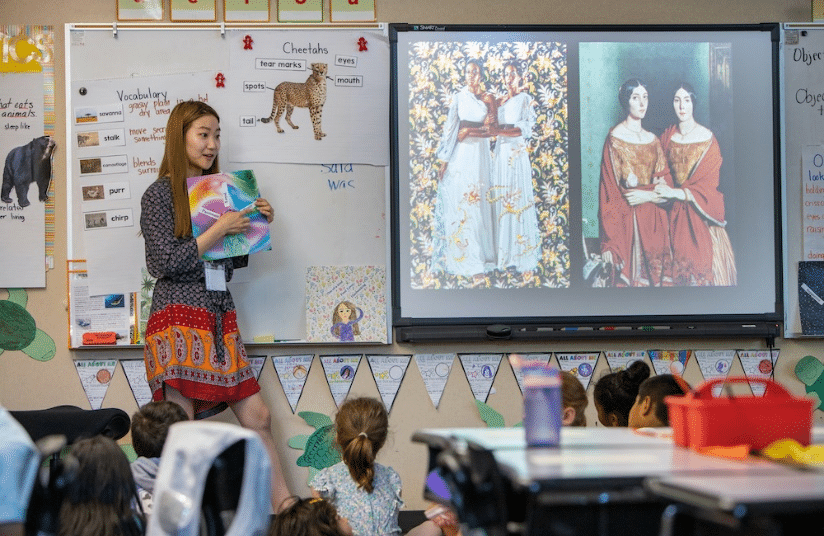 ining doctoral research and teacher education program improvement
ining doctoral research and teacher education program improvement
While incorporating issues of equity and social justice in the preparation of future teachers has long been a focus at the University of Washington College of Education, it wasn’t well understood until recently how that commitment is reflected in graduates’ daily teaching practice.
That picture is getting clearer thanks to an internship for UW doctoral students in teacher education launched three years ago. In a new podcast, Patrick Sexton, assistant dean for teacher education, and Cristina Betancourt, a graduate student in teaching and curriculum, discuss the College’s work to marry teacher education program improvement with the learning of its doctoral students through its Teacher Education Research and Inquiry (TERI) internship.
Sexton and Betancourt are part of a team who will present their work developing case studies of recent alumni for program improvement at the 2020 meeting of the American Association of Colleges for Teacher Education.
Read more.
Incorporating disability studies curriculum in teacher education
While Washington has recognized October as Disability History Month for more than a decade — and schools are asked to honor the month in some fashion — teachers have had limited resources available to help them actually enact disability studies curriculum in the classroom.
18 Feb2020
By Dustin Wunderlich
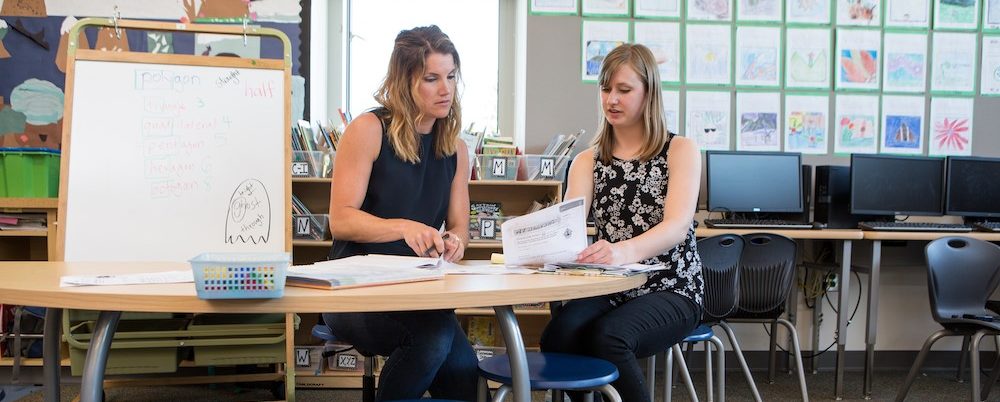
This article originally appeared on the University of Washington College of Education website and is reprinted with permission.
While mentoring novice teachers is a complex task, particularly as it happens inside the action of teaching, mentor teachers typically have little preparation for their role.
Addressing that gap was the focus of a recent effort by University of Washington teacher educators in the UW Accelerated Certification for Teachers (U-ACT) program that will be presented during the 2020 meeting of the American Association of Colleges for Teacher Education.
In a new podcast, Megan Kelley-Petersen, U-ACT director, and Taylor Stafford, U-ACT instructor and doctoral student in teacher education and math education, discuss findings of their work to create opportunities for mentors to become both teachers of teachers and learners of teaching.
11 Feb2020
By Deborah Koolbeck
 On Monday, February 10, 2020, the President kicked off the Fiscal Year 2021 (FY21) budget process by making his budget request to the Congress. Generally released on the first Monday in February, the delay reflects the delay in completing the FY20 appropriations process, which concluded on December 20, 2019. With a divided Congress, we should expect the Administration’s highest priorities to emerge as the heads of agencies and departments testify before the subcommittees of jurisdiction on the Appropriations committees later this spring. We will then learn the priorities of the Democratic Caucus leading the U.S. House of Representatives and those of the Republican Caucus leading the U.S. Senate, as subcommittee bills are released and marked up.
On Monday, February 10, 2020, the President kicked off the Fiscal Year 2021 (FY21) budget process by making his budget request to the Congress. Generally released on the first Monday in February, the delay reflects the delay in completing the FY20 appropriations process, which concluded on December 20, 2019. With a divided Congress, we should expect the Administration’s highest priorities to emerge as the heads of agencies and departments testify before the subcommittees of jurisdiction on the Appropriations committees later this spring. We will then learn the priorities of the Democratic Caucus leading the U.S. House of Representatives and those of the Republican Caucus leading the U.S. Senate, as subcommittee bills are released and marked up.
For the U.S Department of Education (Department), the President’s Budget Request cut the agency’s funding by $6.1 billion, or 8.4% from Fiscal Year 2020 levels. The key initiatives in the President’s Budget Request include the following:
Education Freedom Scholarships
This program establishes a federal tax credit program for voluntary donations to state-designed scholarships for elementary and secondary students offered by state-identified 501c3 non-profit entities. While these scholarships have been proposed before, this FY21 request includes and expansion of the opportunities for students and families.
10 Feb2020
By Katrina Norfleet
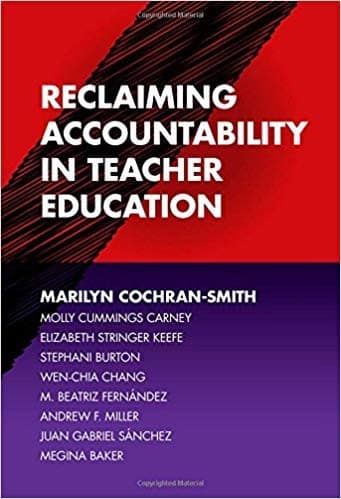 AACTE is delighted to announce the selection of the nine authors of the book, Reclaiming Accountability in Teacher Education, as winners of the 2020 AACTE Outstanding Book Award. They will be recognized formally with the award at the AACTE 72nd Annual Meeting, February 28 – March 1, in Atlanta, GA.
AACTE is delighted to announce the selection of the nine authors of the book, Reclaiming Accountability in Teacher Education, as winners of the 2020 AACTE Outstanding Book Award. They will be recognized formally with the award at the AACTE 72nd Annual Meeting, February 28 – March 1, in Atlanta, GA.
The book, published by Teachers College Press in 2018, provides the field of teacher education with a paradigm-shifting take on accountability, an issue that is central to the theory, policy, and practice of teacher education. The book’s insights and arguments are supported by rigorous scholarship regarding the historical, sociopolitical, and policy contexts of teacher education accountability. The authors created an eight-dimensional framework to critically examine the current dominant accountability paradigm, to deconstruct four influential accountability initiatives, and finally, to envision a new paradigm of democratic accountability.
“Their framework is powerful as a tool used not only for critique, but also for providing a structure for envisioning an entirely different accountability paradigm—one that values democracy, equity, professional responsibility, and deliberative and critical democratic education,” said Tamara Lucas, Dean of the College of Education and Human Services, Montclair State University.
04 Feb2020
By Cynthia Howell
 This article originally appeared in the Arkansas Democrat Gazette and the excerpt below is reprinted with permission.
This article originally appeared in the Arkansas Democrat Gazette and the excerpt below is reprinted with permission.
A recent three-year drop in the number of people enrolled in Arkansas teacher preparation programs appears to have bottomed out, and the number is on the upswing, preliminary data from the Arkansas Division of Elementary and Secondary Education show.
The number of enrollees in the state’s teacher preparation programs for 2018-19 was 4,443.
31 Jan2020
By Jane E. West

This blog post is written by AACTE consultant Jane West and is intended to provide updated information. The views expressed in this post do not necessarily reflect the views of AACTE.
Federal Budget: The Deficit Explodes; Do Earmarks Return?
The federal government’s budget deficit is projected to reach $1.02 trillion in 2020—the first time since 2012 that the deficit breached the $1 trillion threshold—according to the Congressional Budget Office (CBO). The combination of 2017 tax cuts and new spending have been the biggest contributors to the increased deficit. FY 2020 is likely to see spending in the $4.6 trillion range while the government brings in only $3.6 trillion in tax revenue. CBO Director Phillip Swagel said, “Changes in fiscal policy must be made to address the budget situation, because our debt is growing on an unsustainable path.”
House Appropriations Chair, Rep. Nina Lowey (D-NY) is talking with Democratic colleagues to gauge their interest and seek input. The plan under deliberation would be a revised version of past earmarking with rules in place to keep the system in check. One aide to a freshman Democrat who flipped a GOP-held seat in 2018 noted, “This is not what we came to Congress to do. Voters made it clear years ago that they were tired of pork and special interest spending in Washington and sweetheart deals.” However, Majority Leader Steny Hoyer backs the revival of an earmark-type system. However, the Senate does not seem receptive to the idea. “The Republican Caucus is on the record against that, so that’s not going to go anywhere,” said Senate Appropriations Chair Richard Shelby (R-AL).
30 Jan2020
By Katrina Norfleet
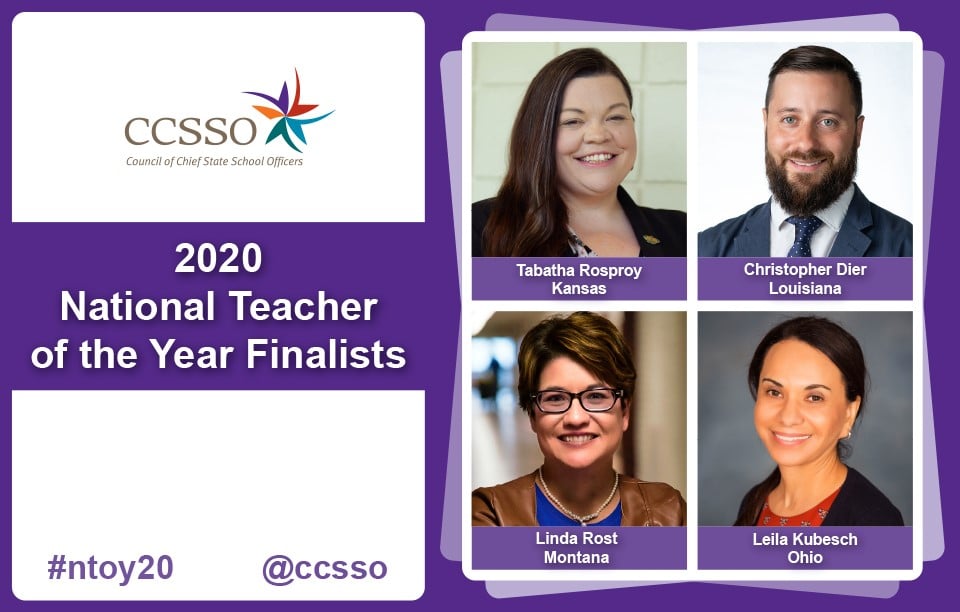
The Council of Chief State School Officers (CCSSO) have announced the four finalists for the 2020 National Teacher of the Year, all of whom are graduates of AACTE member institutions:
Chris Dier, 2020 Louisiana Teacher of the Year, obtained a master of arts in teaching and a master of arts in educational administration from the University of New Orleans. While a Hollyhock Fellow at Stanford University, a program that brings educators together to create more inclusive classrooms, he developed an equity project to legitimize student language. A 10-year teaching veteran, Dier currently teaches world history and AP human geography at Chalmette High where he engages students by bringing aspects of their identity and culture to the forefront of their education. Learn more.
Leila Kubesch, the 2020 Ohio Teacher of the Year, teaches Spanish and English to Speakers of Other Languages (ESOL) at a high-need middle school. To help empower all youth, she fosters community partnerships, writes grants for innovative learning, and instills a mindset of dreaming big through large-scale service-learning projects. The work of her
23 Jan2020
Developing Trauma-Informed Teachers: The Story Of One Teacher Preparation Program
By Brenda Morton and Anna Berardi
Ed Prep Matters features the “Revolutionizing Education” column to spotlight the many ways AACTE, member institutions, and partners are pioneering leading-edge research, models, strategies and programs that focus on the three core values outlined in the current AACTE strategic plan: Diversity, Equity, and Inclusion; Quality and impact; and Inquiry and Innovation.
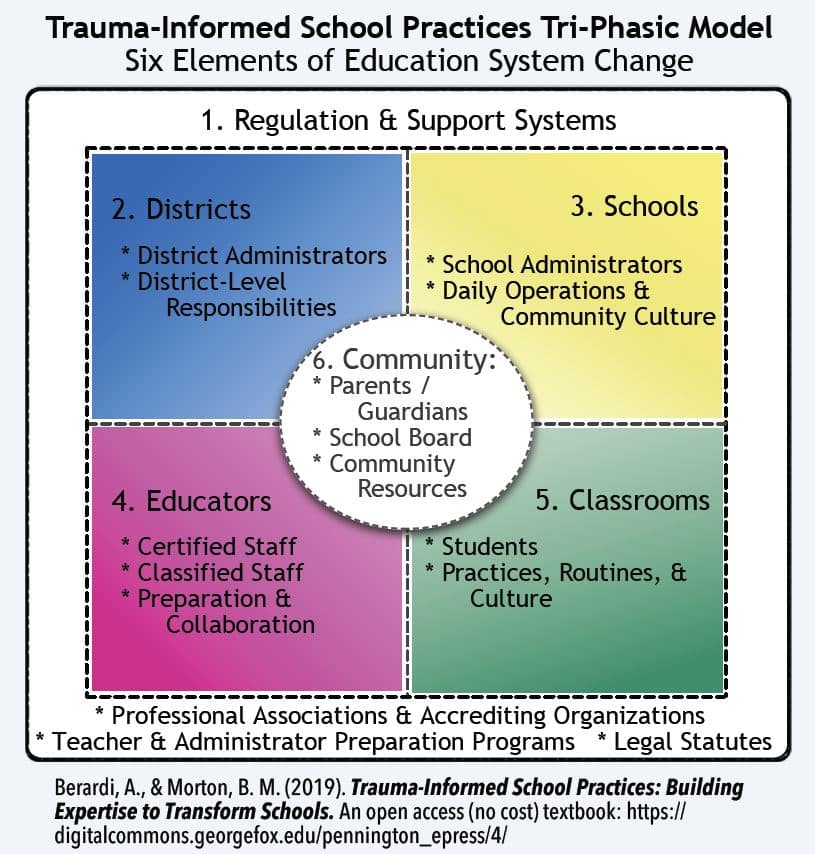 Long before the Adverse Childhood Experiences (ACE) survey illustrated the dire consequences of adverse events on children, educators have known that today’s students are more stressed than previous generations. They face greater challenges developing executive functioning skills needed to succeed in social-emotional and academic tasks. Trauma-informed school approaches have flourished in an attempt to more effectively teach students suffering the consequences of home-based or social-cultural trauma. But we know that this challenge requires more than just offering teachers conferences or webinars on trauma-informed school techniques. We need multi-level systemic change in the way our profession conceptualizes what it truly means to incorporate advances in the neurobiology of trauma and learning.
Long before the Adverse Childhood Experiences (ACE) survey illustrated the dire consequences of adverse events on children, educators have known that today’s students are more stressed than previous generations. They face greater challenges developing executive functioning skills needed to succeed in social-emotional and academic tasks. Trauma-informed school approaches have flourished in an attempt to more effectively teach students suffering the consequences of home-based or social-cultural trauma. But we know that this challenge requires more than just offering teachers conferences or webinars on trauma-informed school techniques. We need multi-level systemic change in the way our profession conceptualizes what it truly means to incorporate advances in the neurobiology of trauma and learning.
In our open access, no cost text Trauma-Informed School Practices we address this challenge by detailing systemic change processes in the application of trauma-informed knowledge. The Trauma-Informed School Practices Tri-Phasic Model (diagram #1) outlines best-practices as applied to students. It is embedded in the Six Elements of Education System Change (diagram #2) needed to ensure a lasting incorporation of this paradigm shift. The reality is, we can’t place the burden of change on current teachers; all of us need to participate.








 To assist education institutions in transitioning to temporary remote instructions of classroom-based courses,
To assist education institutions in transitioning to temporary remote instructions of classroom-based courses,  AACTE has joined this coalition to provide support to the nation’s teacher leaders and educators during the coronovavirus pandemic.
AACTE has joined this coalition to provide support to the nation’s teacher leaders and educators during the coronovavirus pandemic.

 ining doctoral research and teacher education program improvement
ining doctoral research and teacher education program improvement
 On Monday, February 10, 2020, the President kicked off the Fiscal Year 2021 (FY21) budget process by making his budget request to the Congress. Generally released on the first Monday in February, the delay reflects the delay in completing the FY20 appropriations process, which concluded on December 20, 2019. With a divided Congress, we should expect the Administration’s highest priorities to emerge as the heads of agencies and departments testify before the subcommittees of jurisdiction on the Appropriations committees later this spring. We will then learn the priorities of the Democratic Caucus leading the U.S. House of Representatives and those of the Republican Caucus leading the U.S. Senate, as subcommittee bills are released and marked up.
On Monday, February 10, 2020, the President kicked off the Fiscal Year 2021 (FY21) budget process by making his budget request to the Congress. Generally released on the first Monday in February, the delay reflects the delay in completing the FY20 appropriations process, which concluded on December 20, 2019. With a divided Congress, we should expect the Administration’s highest priorities to emerge as the heads of agencies and departments testify before the subcommittees of jurisdiction on the Appropriations committees later this spring. We will then learn the priorities of the Democratic Caucus leading the U.S. House of Representatives and those of the Republican Caucus leading the U.S. Senate, as subcommittee bills are released and marked up. AACTE is delighted to announce the selection of the nine authors of the book, Reclaiming Accountability in Teacher Education, as winners of the 2020 AACTE Outstanding Book Award. They will be recognized formally with the award at the
AACTE is delighted to announce the selection of the nine authors of the book, Reclaiming Accountability in Teacher Education, as winners of the 2020 AACTE Outstanding Book Award. They will be recognized formally with the award at the  This article originally appeared in the
This article originally appeared in the 

 Long before the Adverse Childhood Experiences (ACE) survey illustrated the dire consequences of adverse events on children, educators have known that today’s students are more stressed than previous generations. They face greater challenges developing executive functioning skills needed to succeed in social-emotional and academic tasks. Trauma-informed school approaches have flourished in an attempt to more effectively teach students suffering the consequences of home-based or social-cultural trauma. But we know that this challenge requires more than just offering teachers conferences or webinars on trauma-informed school techniques. We need multi-level systemic change in the way our profession conceptualizes what it truly means to incorporate advances in the neurobiology of trauma and learning.
Long before the Adverse Childhood Experiences (ACE) survey illustrated the dire consequences of adverse events on children, educators have known that today’s students are more stressed than previous generations. They face greater challenges developing executive functioning skills needed to succeed in social-emotional and academic tasks. Trauma-informed school approaches have flourished in an attempt to more effectively teach students suffering the consequences of home-based or social-cultural trauma. But we know that this challenge requires more than just offering teachers conferences or webinars on trauma-informed school techniques. We need multi-level systemic change in the way our profession conceptualizes what it truly means to incorporate advances in the neurobiology of trauma and learning.